10 Best Herbal Capsules For Fever

Herbal capsules for fever are natural remedies that use plant-based ingredients to reduce body temperature and alleviate symptoms associated with fevers.
Common herbs used in these capsules include willow bark, echinacea, and ginger, which are known for their anti-inflammatory and antipyretic properties. These capsules are often preferred by individuals seeking alternative or complementary treatments to conventional medications. They are generally considered safe when used as directed, though they may interact with certain medications or have side effects in some people.
It is advisable to consult a healthcare professional before using herbal capsules for fever, especially for children, pregnant women, or those with chronic health conditions.
Table of Contents
- 1. Echinacea (Echinacea purpurea)
- 2. Ginger (Zingiber officinale)
- 3. Black elderberry (Sambucus nigra)
- 4. Peppermint (Mentha piperita)
- 5. Thyme (Thymus vulgaris)
- 6. Salvia (Salvia officinalis)
- 7. St. john's wort (Hypericum perforatum)
- 8. Ceylon cinnamon (Cinnamomum verum)
- 9. Chaste tree (Vitex agnus-castus)
- 10. White cedar (Thuja occidentalis)
1. Echinacea (Echinacea purpurea)

Echinacea purpurea, commonly known as purple coneflower, is a popular herbal remedy often used to support the immune system.
While it is traditionally used to prevent or alleviate colds and flu, its role in treating fever is less well-established. Some studies suggest that echinacea may reduce the duration and severity of mild fevers by enhancing immune function and reducing inflammation. However, there is limited scientific evidence specifically supporting its efficacy for fever treatment.
As a result, it is generally recommended to use echinacea in conjunction with other conventional treatments for fever, under the guidance of a healthcare professional.
2. Ginger (Zingiber officinale)

Zingiber officinale, commonly known as ginger, has been traditionally used for its therapeutic properties, including its ability to reduce fever.
Herbal capsules containing zingiber officinale are often used as a natural remedy to help lower body temperature and alleviate symptoms associated with fever. These capsules work by promoting perspiration and enhancing the body's metabolic processes, which can aid in reducing heat and toxins. However, while ginger is generally safe for most people, it is advisable to consult a healthcare professional before use, especially for those with existing medical conditions or who are taking other medications.
Overall, zingiber officinale herbal capsules may offer a mild and supportive approach to managing fever when used as part of a holistic health strategy.
3. Black elderberry (Sambucus nigra)
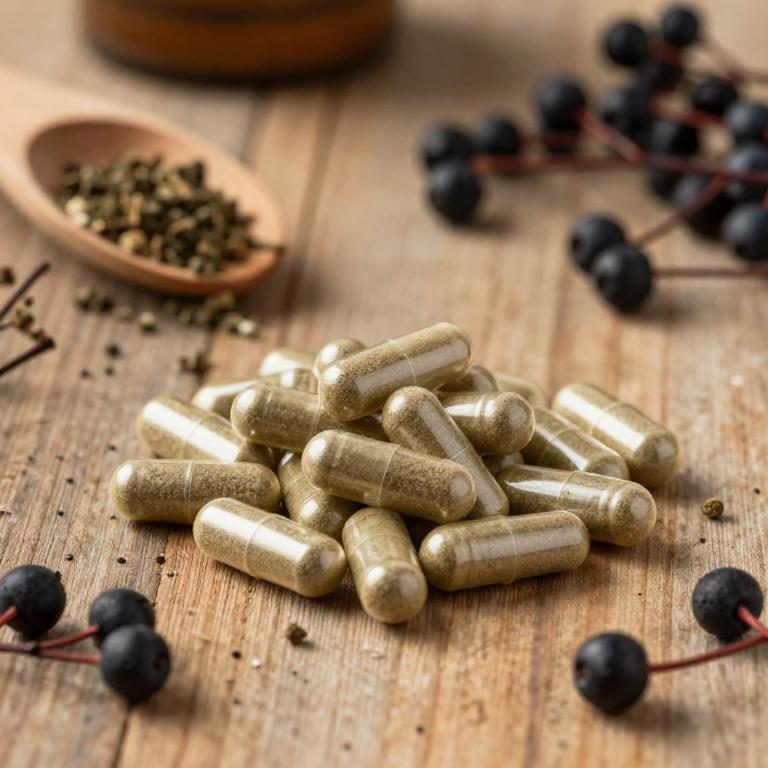
Sambucus nigra, commonly known as elderberry, is often used in herbal medicine for its potential immune-supporting properties.
While it is not a direct antipyretic, some studies suggest that elderberry may help reduce the duration and severity of cold and flu symptoms, which can indirectly support the body during fever. Herbal capsules containing Sambucus nigra are typically made from dried berries and are available in various formulations. These capsules are generally considered safe when used as directed, though they should be avoided during pregnancy and by individuals with autoimmune disorders.
It is important to consult with a healthcare provider before using elderberry supplements, especially if you are taking other medications or have underlying health conditions.
4. Peppermint (Mentha piperita)
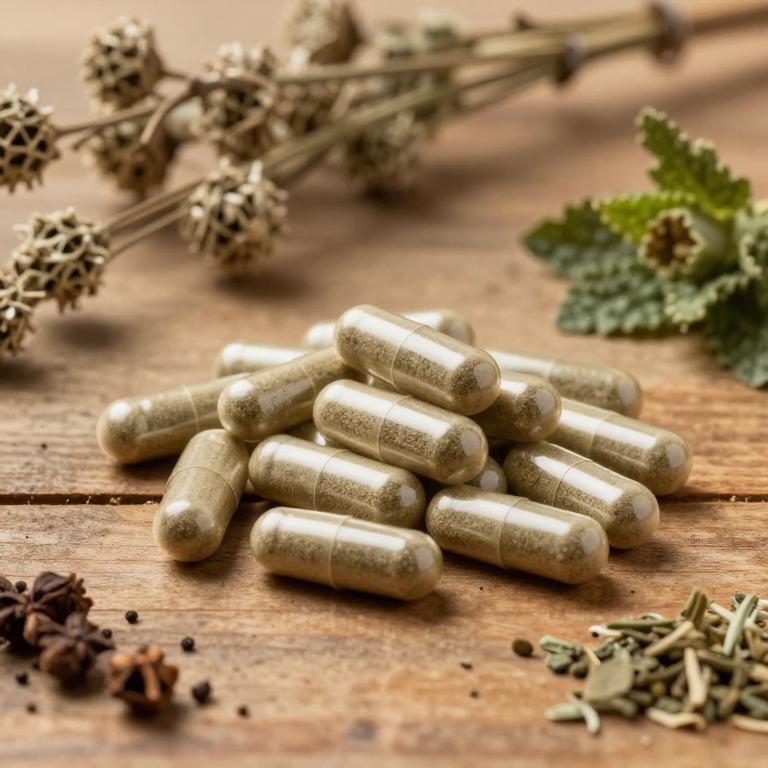
Mentha piperita, commonly known as peppermint, is often used in herbal formulations to support the body's natural response to fever.
Peppermint herbal capsules are typically made from the dried leaves of the plant and are rich in menthol, which has cooling and soothing properties. These capsules may help alleviate symptoms associated with fever, such as headaches and body aches, by promoting a sense of relief and improving circulation. While they are not a substitute for medical treatment, they can be a complementary remedy when used under the guidance of a healthcare professional.
It is important to note that peppermint capsules may interact with certain medications, so consulting a doctor before use is advisable.
5. Thyme (Thymus vulgaris)
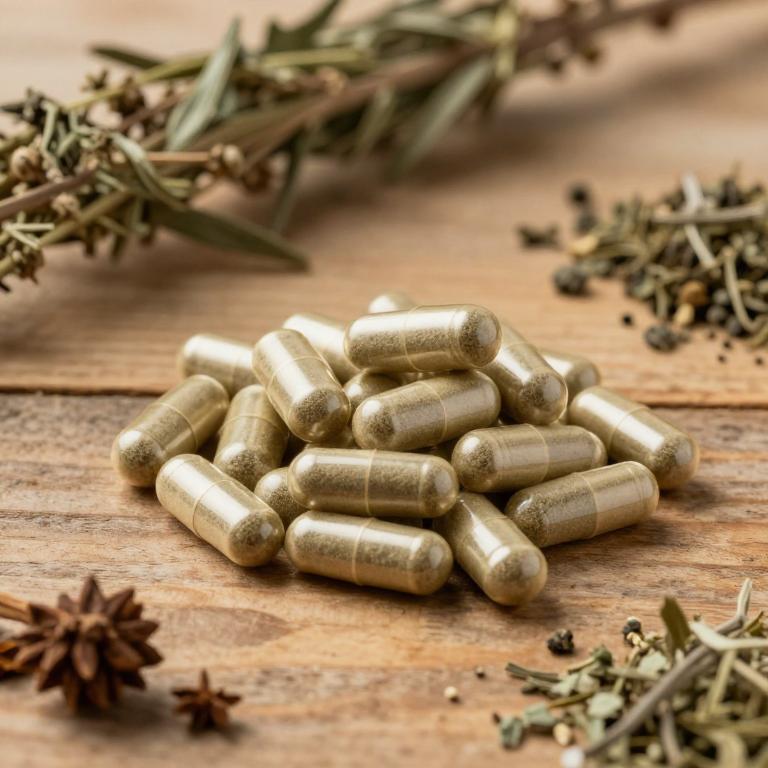
Thymus vulgaris herbal capsules, derived from the plant commonly known as thyme, are traditionally used to support the body's natural defenses against illness, including fever.
These capsules contain essential oils and phytochemicals that may help reduce inflammation and enhance immune function, potentially aiding in the body's response to fever. While not a substitute for medical treatment, thymus vulgaris is often used as a complementary therapy to alleviate symptoms associated with fever. The active compounds in thyme, such as thymol and carvacrol, are believed to have antiseptic and antimicrobial properties that may contribute to its effectiveness.
However, it is important to consult a healthcare professional before using thyme capsules, especially for prolonged periods or in combination with other medications.
6. Salvia (Salvia officinalis)
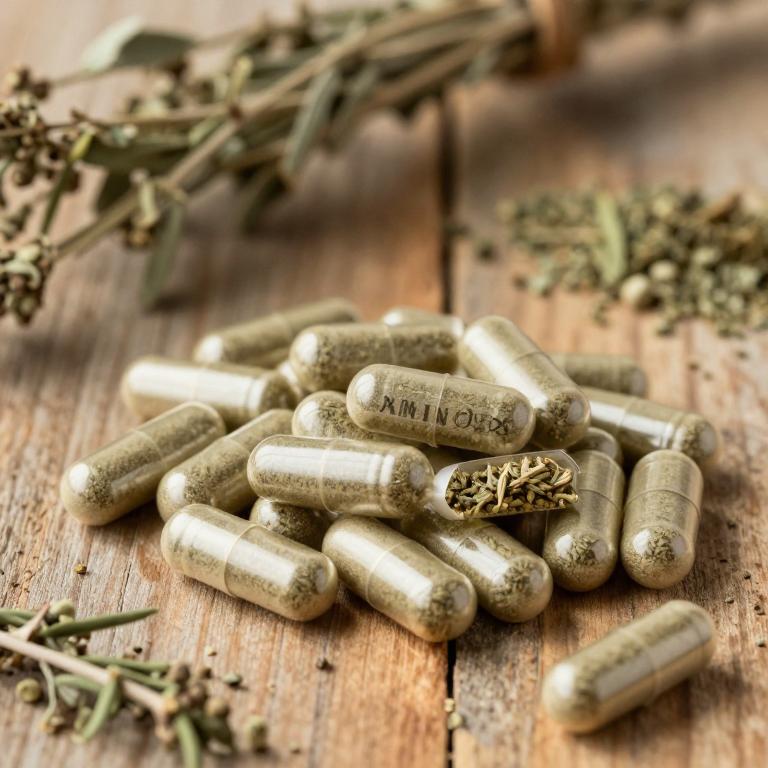
Salvia officinalis, commonly known as sage, has been traditionally used in herbal medicine for its potential therapeutic properties.
While it is not a primary treatment for fever, some studies suggest that sage may help reduce fever symptoms due to its antimicrobial and anti-inflammatory effects. Herbal capsules containing salvia officinalis are often used as a complementary remedy to support the body's natural healing process. However, it is important to consult a healthcare professional before using sage for fever, especially for children or individuals with chronic health conditions.
As with any herbal supplement, the safety and efficacy of salvia officinalis can vary, and it should not replace conventional medical treatment for fever.
7. St. john's wort (Hypericum perforatum)

Hypericum perforatum, commonly known as St. John's wort, is traditionally used in herbal medicine for its potential anti-inflammatory and antipyretic properties.
While it is more widely recognized for its use in treating mild to moderate depression, some studies suggest it may have a role in reducing fever due to its ability to modulate the body's inflammatory response. Herbal capsules containing Hypericum perforatum are often used as a natural alternative to conventional fever remedies, though their efficacy for fever specifically requires further scientific validation. It is important to consult a healthcare professional before using St. John's wort, as it can interact with various medications and may have side effects.
Despite its traditional use, hypericum perforatum capsules should not replace prescribed treatments for fever, especially in severe cases.
8. Ceylon cinnamon (Cinnamomum verum)
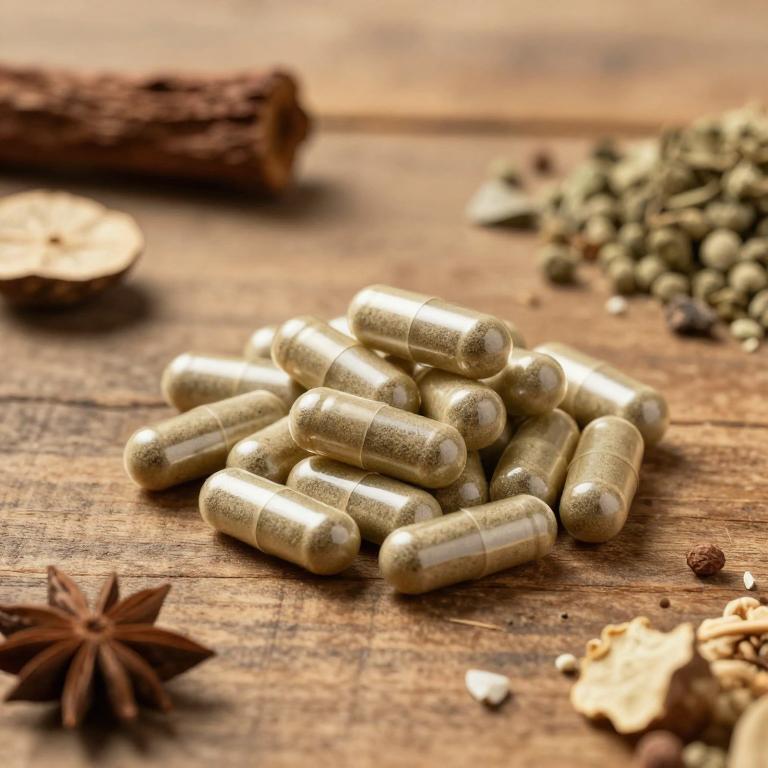
Cinnamomum verum, commonly known as true cinnamon, is traditionally used in herbal medicine for its potential health benefits, including its ability to help reduce fever.
The essential oils and compounds found in cinnamon, such as cinnamaldehyde and eugenol, possess antimicrobial and anti-inflammatory properties that may support the body's immune response during illness. When consumed in the form of herbal capsules, cinnamon can be a convenient and concentrated source of these beneficial compounds. However, it is important to consult a healthcare professional before using cinnamon capsules for fever, especially for prolonged periods or in combination with other medications.
While some studies suggest that cinnamon may help lower body temperature, more research is needed to fully understand its efficacy and safety in treating fever.
9. Chaste tree (Vitex agnus-castus)

Vitex agnus-castus, commonly known as chasteberry, is a traditional herbal remedy that has been used for centuries for its potential therapeutic properties.
While it is often associated with hormonal balance and menstrual health, some studies suggest it may have mild antipyretic effects, helping to reduce fever. However, it is not typically recommended as a primary treatment for fever due to limited clinical evidence supporting its efficacy in this regard. Herbal capsules containing Vitex agnus-castus are generally considered safe when used in recommended doses, though they should not replace conventional medical treatments for fever.
It is important to consult a healthcare professional before using any herbal remedy, especially for conditions like fever that may require more targeted interventions.
10. White cedar (Thuja occidentalis)
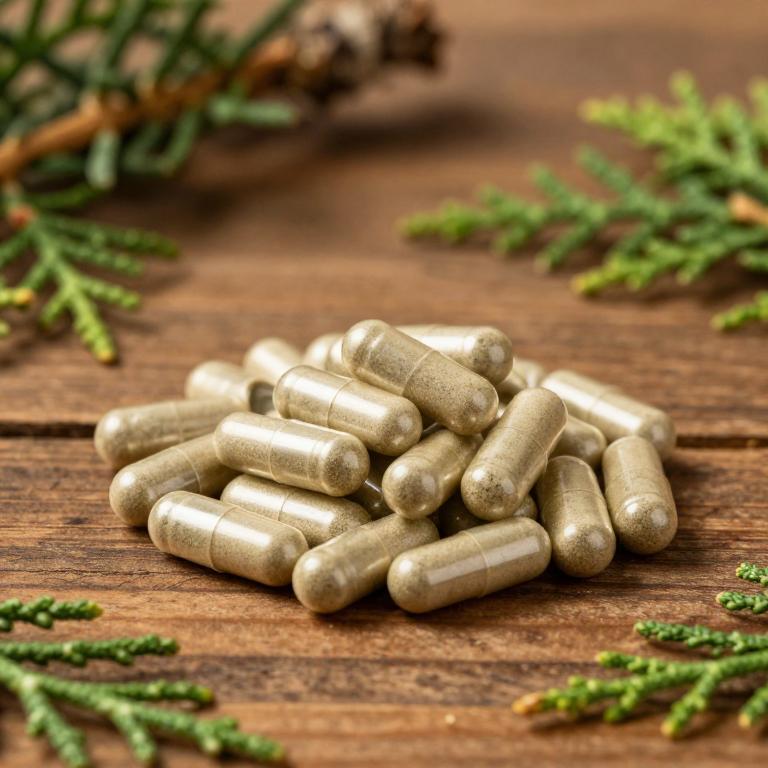
Thuja occidentalis, also known as eastern arborvitae, is a traditional herbal remedy that has been used for various health purposes, including the treatment of fever.
While it is not a primary treatment for fever in modern medicine, some herbal practitioners may recommend thuja occidentalis capsules as a complementary therapy to support the body's natural healing processes. The plant contains compounds such as essential oils and flavonoids, which may possess antimicrobial and anti-inflammatory properties that could aid in reducing fever symptoms. However, it is important to note that thuja occidentalis should not be used as a substitute for conventional medical treatment for fever, especially in severe cases.
As with any herbal supplement, it is advisable to consult with a healthcare professional before use to ensure safety and appropriateness for individual health conditions.